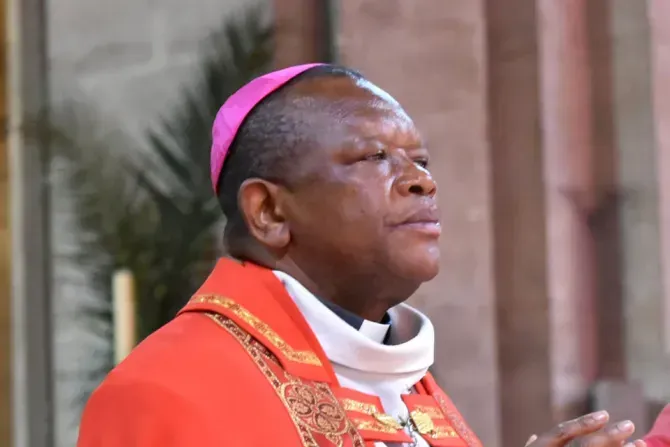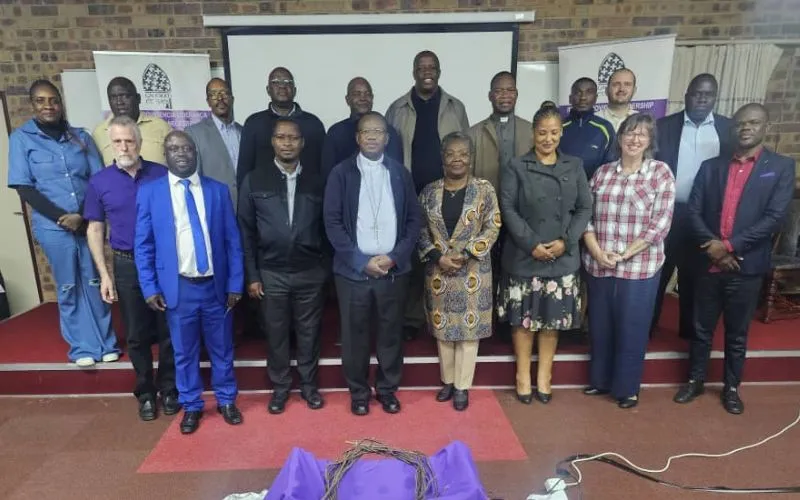The cardinal clarified that, although the text appears to have been signed in Accra, Ghana, the headquarters of SECAM, in reality, he said, “I signed it in Rome.”
“This is to express our position today in Africa and we do it in a spirit of communion, of synodality with Pope Francis, and with the prefect of the Dicastery for the Doctrine of the Faith: In Africa there is no place to bless homosexual couples. Not at all,” he stressed.
On Jan. 11, SECAM published a five-page statement stating: “The Episcopal Conferences of all Africa, which have strongly reaffirmed their communion with Pope Francis, believe that the extra-liturgical blessings proposed in the declaration Fiducia Supplicans cannot be carried out in Africa without exposing themselves to scandals.”
Individual blessings
Ambongo also stressed that, although Africa opposes the blessing of same-sex couples, it is necessary to “respect homosexual people because they are human beings. We should not look at them, treat them with contempt. They are creatures of God. And as creatures of God, if an individual homosexual asks for a blessing, we bless the person. We can bless him as a person.”
(Story continues below)
After noting that criminals can also be blessed, the cardinal pointed out that these blessings for individual persons are given “in the hope that the grace of the blessing can help them convert. And if we bless a homosexual, it is also to say that ‘your sexual orientation is not in accordance with the will of God and we hope that the blessing can help you change because homosexuality is condemned in the Bible and by the magisterium of the Church.’”
“We cannot be promoters of sexual deviation. Let them do it in their homes, but not in ours,” he said.
Marriage, family in Africa vs. the West
Ambongo also lamented that currently in “the West, since they don’t like children, they want to attack the basic cell of humanity, which is the family. If you destroy the family, you destroy society.”
The cardinal lamented that now in the West the meaning of marriage has also been lost and culture “is in decline,” something that also affects the economy. “Little by little, they are going to disappear. They will disappear. We wish them a good demise,” he continued.
The cardinal also denounced the action of international organizations such as the U.N., UNICEF, and the World Health Organization, among others, which condition their financing on the promotion of gender ideology, which does not recognize the natural sexual difference between men and women.
“However, our culture in Africa is not like that. Yes, we have many defects, but we cannot be reproached for homosexuality. You can find isolated cases, like those in Uganda,” he said, but “society doesn’t work that way. That practice does not exist among us.”
This story was first published by ACI Prensa, ACI Africa's Spanish-language news partner.
Walter Sánchez Silva is a senior writer for ACI Prensa (https://www.aciprensa.com). With more than 15 years of experience, he has reported from important ecclesial events in Europe, Asia and Latin America during the pontificates of Benedict XVI and Pope Francis. E-mail: walter@aciprensa.com








